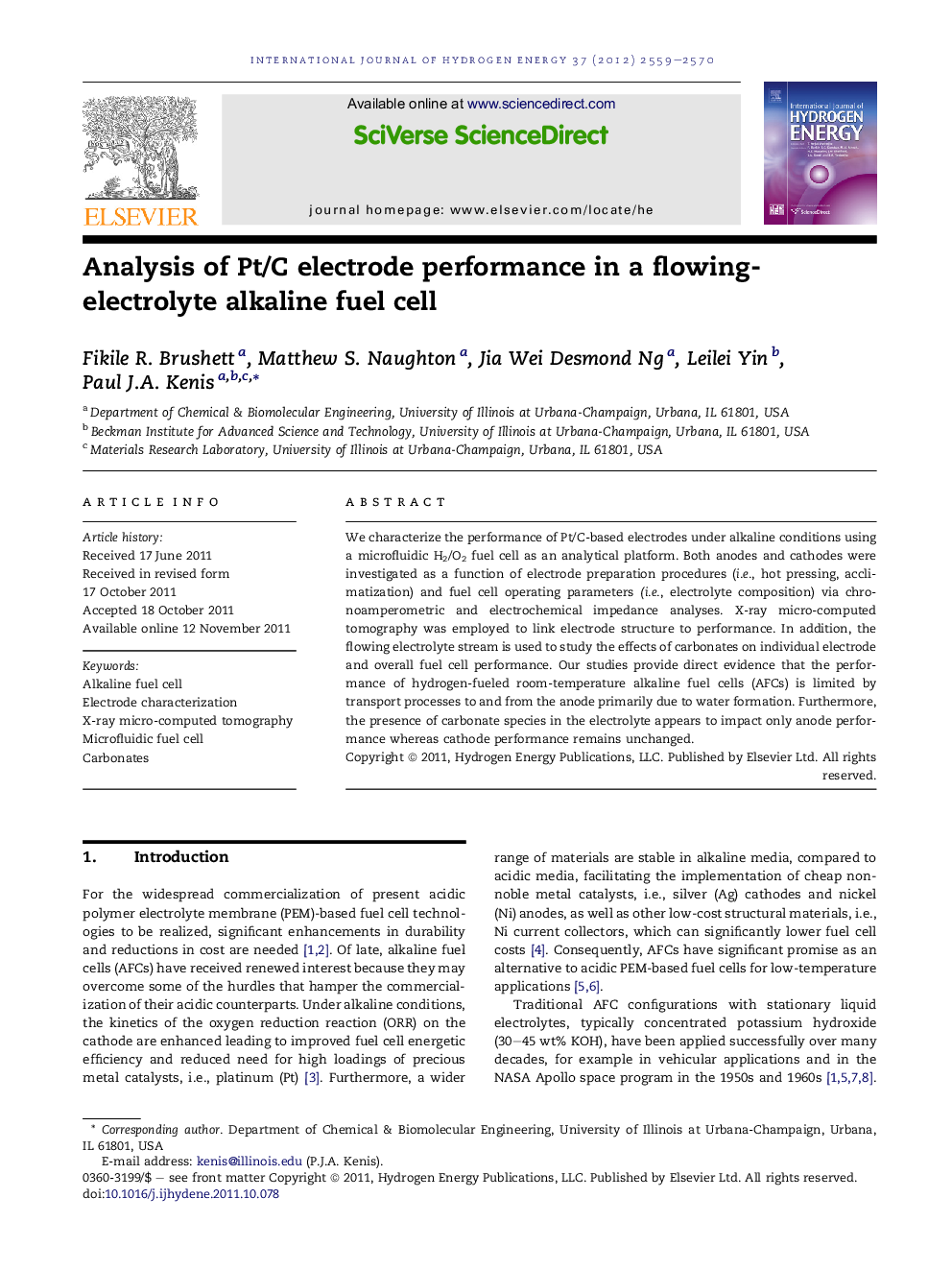| Article ID | Journal | Published Year | Pages | File Type |
|---|---|---|---|---|
| 1271677 | International Journal of Hydrogen Energy | 2012 | 12 Pages |
We characterize the performance of Pt/C-based electrodes under alkaline conditions using a microfluidic H2/O2 fuel cell as an analytical platform. Both anodes and cathodes were investigated as a function of electrode preparation procedures (i.e., hot pressing, acclimatization) and fuel cell operating parameters (i.e., electrolyte composition) via chronoamperometric and electrochemical impedance analyses. X-ray micro-computed tomography was employed to link electrode structure to performance. In addition, the flowing electrolyte stream is used to study the effects of carbonates on individual electrode and overall fuel cell performance. Our studies provide direct evidence that the performance of hydrogen-fueled room-temperature alkaline fuel cells (AFCs) is limited by transport processes to and from the anode primarily due to water formation. Furthermore, the presence of carbonate species in the electrolyte appears to impact only anode performance whereas cathode performance remains unchanged.
► We use an alkaline microfluidic H2/O2 fuel cell for to study electrode and catalyst performance. ► Electrode hot-pressing hampers anode water management and performance. ► MicroCT determined that hot-pressing compresses the backing layer. ► A flowing electrolyte removes precipitated carbonates. ► Pt cathodes are unaffected by carbonate formation.
